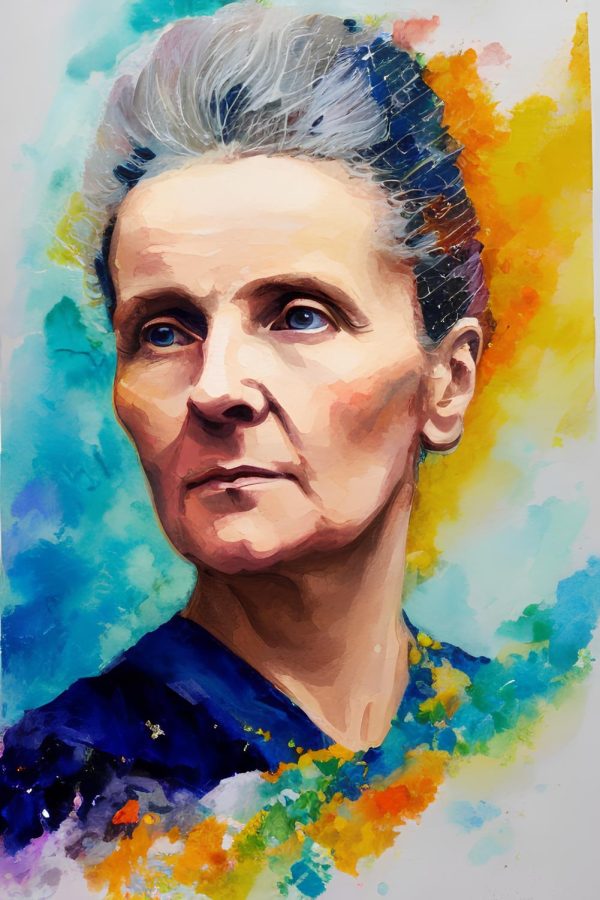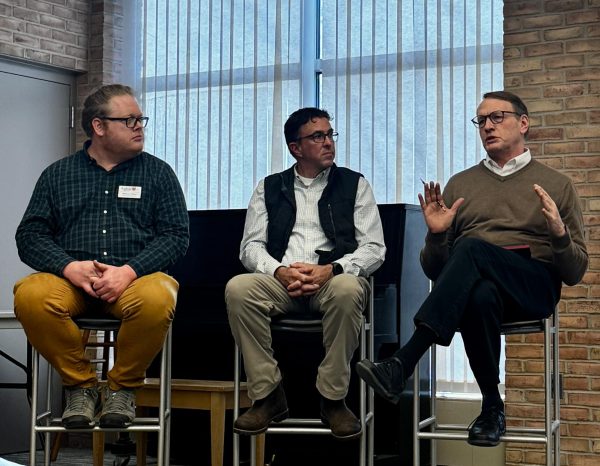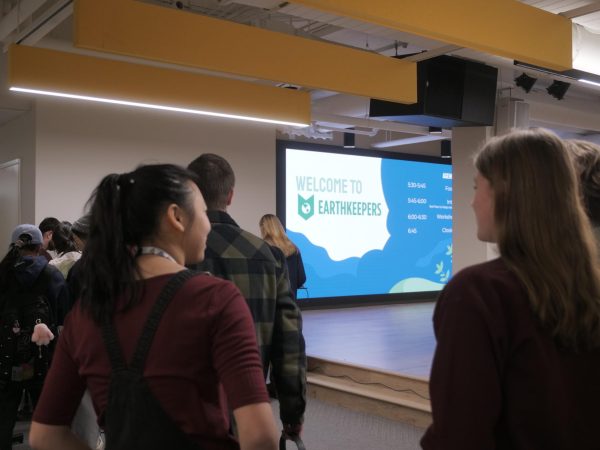Celebrating women of STEM
Marie Curie was the first person to win the Nobel Prize twice.
This year marks the 36th anniversary of March being dedicated as Women’s history month by the Continental Congress. Because women are still underrepresented in STEM –– accounting for only 27% of STEM workers in 2019, according to the U.S. Census Bureau — Chimes spoke with Calvin women on what inspires them to remain in the field.
For Maggie Bentley, a junior studying civil engineering, her primary inspiration to pursue STEM was her dad. “My dad is a math teacher and when I was little, he would take his high school math and physics class to Cedar Point, and he would [let me tag] along. I loved the roller coasters, not only because they’re super fun, but I wanted to know all the math and science and how someone builds this,” said Bentley.
Bentley also found inspiration in female pioneers in the science field. An example is the story depicted in the movie “Hidden Figures” (2016). Based on a true story, the film told the stories of Mary Jackson, Katherine Johnson and Dorothy Vaughan, who were pioneers for Black women entering into the field of science. Katherine Johnson even received the Presidential Medal of Freedom in 2015. “I think that [film] was really cool because they’re the first women at NASA, but they were also the first Black women at NASA too, and … they had even more obstacles than I had,” Bentley said.
Women have not always been given the recognition that they deserve. Marie Curie, a Polish-French physicist who has been awarded two Nobel Prize awards, which made her the first woman to win a Nobel Prize award, and the first person to win the award twice, as well as in separate fields. However, when Curie won her first Nobel Prize award for her work with radiation, in 1903 her name was almost excluded from the nomination and presentation of the award.
Julie Yonker, psychology professor and director of the public health program, told Chimes her primary inspiration for pursuing a career in STEM was her mother.
According to Yonker, her mother immigrated to the U.S. from the Netherlands at 11 years old, without knowing any English, and was able to get her highschool diploma on time.
“She always encouraged me to think big and realize … that if I had the interest, ability and calling, I could accomplish those goals,” said Yonker.
For Yonker, one of the most inspiring women in STEM is Florence Nightingale. Popularly known as the “The Lady with the Lamp,” Florence Nightingale is the founder of modern nursing, known primarily for her work on the battlefronts of the Crimea.
“We often consider [Nightingale] the mother of modern nursing, but she also used statistics to show how health can be improved, which is a tenet of public health,” said Yonker.
Yonker told Chimes that what inspires her to stay in the field of STEM is her love for teaching and sharing that with students. “I continue my work in STEM because I enjoy teaching and I enjoy research,” she said. “I also am passionate about sharing what I have learned about God’s world with my students.”







